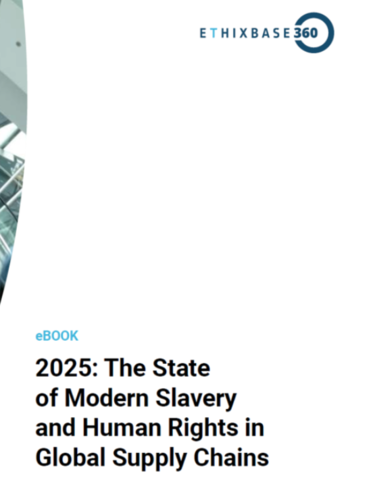Leading in the face of adversity

Mike Morini at WorkForce Software explains how to keep staff engaged through a recession
While the pandemic put even the strongest business leaders to the test, many argue that further challenges still await leaders – with the Bank of England predicting the longest UK recession in 100 years.
However, any sports fan will know that the greatest leaders often shine brightest when facing adversity. Take Claudio Ranieri bringing Leicester City to footballing glory in 2016 or Michael Vaughan leading England’s cricketers to claim The Ashes in 2005, for example.
As a former NFL football player turned tech CEO, many of the leadership lessons I learned on the field I have been able to apply in business and in the boardroom, to help me lead through the toughest times.
Whilst 2023 will continue to be challenging, I encourage other leaders to hone the following leadership strategies to ready their company for what’s to come in the months ahead.
Tip 1: Identify your north star, then streamline to reach it
During times of uncertainty, prioritise the essentials and identify ways to work to your employees’ strengths. This requires decisiveness, even when team members may struggle to let things go.
Identify activities that matter most to the business and execute with unwavering prioritisation so you can gain ground even when times are more challenging. Letting go of some projects or priorities can be a better strategy than trying to do it all with fewer resources.
The key will be promoting an open-mindedness to approaching top business priorities. This means potentially encouraging both your leaders and on-the-ground teams to consider alternative ways to achieve business goals – looking for new ideas or streamlined processes that reduce unnecessary or inefficient work.
Central to this is rewarding key contributors, wherever they are, and abandoning rigid rules that could get in the way of achieving the desired end result. Now is not the time to be held back by notions of ‘but we’ve always done it this way’, and this elasticity must be exemplified from the c-suite all the way through to the frontline.
Tip 2: Prioritise consistent communications
While making tough decisions is to be expected, don’t shy away from the fact that it will have a direct impact on your employees. Most staff will accept your choices if they have been clearly explained and they feel engaged in the decision-making process.
That means being open and honest about the business’s reality before decisions are made and talking frequently and consistently about your financial position to avoid staff making rash choices based on fear.
Take time to communicate accomplishments and maintain an openness to continuous improvement – regardless of where the idea originates. We know that much can be learned by individuals closest to the work or closest to the customers about the barriers that exist for them to perform at their best. Make sure communications are enabled too, with and between your teams.
Tip 3: Maintain cultural standards
Building culture takes discipline. Protecting and curating organisational culture during periods of turbulence is essential, but so is ensuring that anyone brought in to help supports your culture.
Some companies are forced to make hiring decisions because they need the staff, but you should consider if this is counterproductive to your goals. While the role might be filled, you now face the difficulty of dealing with people who aren’t the right fit, leaving teams feeling demotivated and disengaged.
Ultimately, it’s as much about who you add as who you keep. Amid cutbacks, protect the cultural elements that make your brand unique and protect what matters most to your employees so they can perform at their peak.
Tip 4: Be the CEO, not the best friend
Ultimately, your employees don’t need a friend – they need a leader to navigate the business through difficult times to safeguard the majority. Listen to your employees and consider their needs, but never forget the businesses’ needs too.
The focus should remain on the bottom line to ensure job security in the long term, and hard decisions will only be made harder by delays or avoidance. If you can’t increase pay, for example, you must make it up in other areas and be transparent with your people. If you are clear, honest, and empathetic, you’ll be amazed at the response you can get from your own team.
Grasp the opportunity
To conclude, there’s value in making tough decisions, which often make it easier to identify tangible growth opportunities versus short-term ‘nice to haves’.
However, refining strategy and priorities to yield better long-term results must be carefully managed and communicated. It all comes back to transparent communications alongside rewards and recognition for key staff when the time is right.
In the face of uncertainty or adversity, there is a need for leaders to be just that: true leaders. From my experience, striking a balance between empathetic and decisive leadership will build staff trust and confidence that lasts way beyond the turbulence that may lie ahead.
Mike Morini is CEO of WorkForce Software
Main image courtesy of iStockPhoto.com

Business Reporter Team
Most Viewed
Winston House, 3rd Floor, Units 306-309, 2-4 Dollis Park, London, N3 1HF
23-29 Hendon Lane, London, N3 1RT
020 8349 4363
© 2024, Lyonsdown Limited. Business Reporter® is a registered trademark of Lyonsdown Ltd. VAT registration number: 830519543





